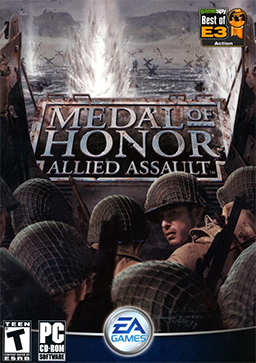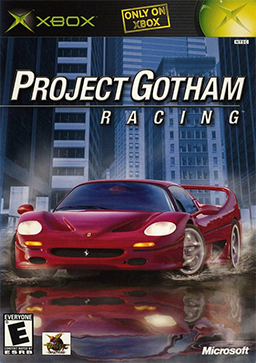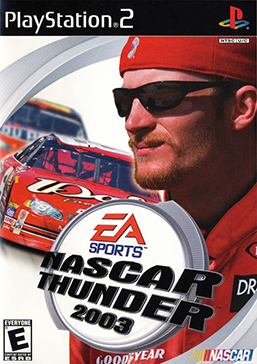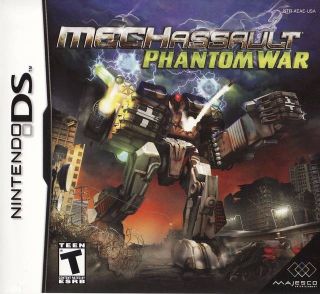
Medal of Honor: Allied Assault is a 2002 first-person shooter video game developed by 2015, Inc. and published by Electronic Arts. It was released for Windows, Mac OS X, and Linux. Allied Assault is the third game in the Medal of Honor series. The game uses the id Tech 3 engine, with modifications from Heavy Metal: F.A.K.K.², to simulate infantry combat in the European and North African theaters during World War II.
BattleTech is a wargaming and military science fiction franchise launched by FASA Corporation in 1984, acquired by WizKids in 2001, which was in turn acquired by Topps in 2003; and published since 2007 by Catalyst Game Labs. The trademark is currently owned by Topps and, for video games, Microsoft's Xbox Game Studios; Catalyst Game Studios licenses the franchise from Topps.

Project Gotham Racing is a racing video game developed by Bizarre Creations and published by Microsoft Game Studios. It was released exclusively for the Xbox as a launch title in November 2001.

Unreal Tournament is a first-person arena shooter video game developed by Epic Games and Digital Extremes. The second installment in the Unreal series, it was first published by GT Interactive in 1999 for Windows, and later released on the PlayStation 2 and Dreamcast by Infogrames in 2000 and 2001, respectively. Players compete in a series of matches of various types, with the general aim of out-killing opponents. The PC and Dreamcast versions support multiplayer online or over a local area network. Free expansion packs were released, some of which were bundled with a 2000 re-release: Unreal Tournament: Game of the Year Edition.

Steel Battalion is a video game created by Capcom for the Xbox console where the player controls a "Vertical Tank"—a bipedal, heavily armed mecha. To control the tank and play the game requires the use of a large controller made specially for Steel Battalion. The controller consists of 44 input points, mainly buttons, but also uses two joysticks, a throttle handle, a radio channel dial, five switches, an eject button, and three foot pedals. Only limited quantities were made available. These quickly sold out, making the game a collector's piece. It has since been re-released in limited quantities worldwide, with blue controller buttons distinguishing it from the first edition with green buttons.

TimeSplitters 2 is a first-person shooter video game, developed by Free Radical Design, published by Eidos Interactive, and released in 2002 for PlayStation 2, Xbox and GameCube. The game's story focuses on the efforts of a space marine who seeks to recover powerful time crystals from a race of alien mutants called TimeSplitters, which leads them to taking on the form of an individual dealing with their own problems across different time periods between the 19th and 25th century. The developers focused on expanding the story element following 2000's TimeSplitters, and features influences from various film genres, including Horror, Action and Science Fiction.

MechCommander is a real-time tactics video game based on FASA's BattleTech/MechWarrior franchise, developed by FASA Interactive and distributed by MicroProse in 1998. An expansion pack, Desperate Measures, was released in 1999.

Unreal Championship is a first-person arena shooter video game developed by Digital Extremes and Epic Games, published by Infogrames, and released for the Xbox. Part of the Unreal franchise, Unreal Championship is the console version of Unreal Tournament 2003, and was developed to take advantage of Xbox Live. The game is notable for being the first ever console game to receive a downloadable patch. In 2003 Unreal Championship was added to the Xbox "Platinum Hits" line.

Soldier of Fortune II: Double Helix is a first-person shooter video game developed by Raven Software, the sequel to Soldier of Fortune. It was developed using the id Tech 3 engine as opposed to the original's id Tech 2, and published in 2002. Once again, Raven hired John Mullins to act as a consultant on the game. Based on criticisms of the original game, Raven Software developed Soldier of Fortune II to be a more "realistic" game, with more modern tactical shooters like Operation Flashpoint: Cold War Crisis (2001) and Tom Clancy's Rainbow Six (1998) serving as inspirations, rather than Quake (1996).

NASCAR Thunder 2003 is the sixth edition of the EA Sports' NASCAR racing simulator series. Developed by EA Tiburon and Budcat Creations and published by EA Sports. It was released for PlayStation, PlayStation 2, GameCube, and Xbox on September 18, 2002, and for Microsoft Windows on October 21. The product features Dale Earnhardt Jr. on the cover. It was the first time the NASCAR's Most Popular Driver Award recipient was featured on the cover, although he did not win the award for the first time until the following year. Dale Earnhardt appeared in the game as a driver as a result of entering his name as a Create-A-Car driver's name; he did not appear in the previous game due to his death. He appeared as a legend in subsequent games.

Bruce Lee: Quest of the Dragon is a beat 'em up video game featuring martial artist Bruce Lee. It was developed by Ronin Entertainment and published by Universal Interactive, and was released in Europe and the United States for the Xbox in 2002 to a negative critical reception.

MechWarrior 4: Vengeance is a vehicle simulation game, developed by FASA Interactive and published by Microsoft. It was released on November 22, 2000. It is the fourth game in MechWarrior series. It takes place in BattleTech universe where the pinnacle of all war machines are huge, heavily armed robots called BattleMechs. The player pilots one of these "'Mechs" and uses variety of available weapons to battle enemy 'Mechs, tanks and other vehicles. An expansion pack, MechWarrior 4: Black Knight, was released in 2001, and a subsequent stand-alone expansion, MechWarrior 4: Mercenaries, was released on November 7, 2002. Two smaller expansions, Inner Sphere Mech Pak and Clan Mech Pak, were also released in 2002.

MechAssault 2: Lone Wolf is a 2004 video game developed by Day 1 Studios and FASA Studio and published by Microsoft Game Studios exclusively for the Xbox console, and set in the BattleTech universe. Development of MechAssault 2 was announced shortly following the release of MechAssault, with the developers focusing on the expansion of online and networking features to capitalise upon the success of the original game as a pilot title for the Xbox Live online service, and creating a more open-ended gameplay style in which players are able to exit their mech and occupy multiple vehicles.

MechAssault: Phantom War is an action video game that is part of the MechWarrior series and part of the BattleTech universe created by FASA. Players assume the role of a BattleMech pilot in a 3D environment with a third person view of the combat via the top screen of the DS, while the touch screen displays the inside of the cockpit and acts as the game's controls.

MechWarrior 3 is a vehicle simulation game, part of the MechWarrior series. It featured a new 3D accelerated graphics engine at the time of its release. The game contains over 20 missions, with access to 18 different mechs. A novelization called Trial Under Fire was written by Loren L. Coleman.

Land of the Dead: Road to Fiddler's Green is a first-person shooter licensed video game based on the George A. Romero zombie horror movie Land of the Dead, developed by Brainbox Games and published by Groove Games.

Mechwarrior 4: Mercenaries is a vehicle simulation video game for Microsoft Windows, released in 2002. It is a standalone expansion of MechWarrior 4: Vengeance, based on the BattleTechMechWarrior game universe. The game was developed by Cyberlore in tandem with FASA Studio. This studio would also be responsible for MechWarrior 4's previous expansion, Black Knight - as well as both the InnerSphere and Clan Mech Packs.

Crimson Skies: High Road to Revenge is a first-party video game developed by FASA Studio for the Xbox. The game, like the earlier Crimson Skies for the PC, is an action-oriented arcade flight game. Nonetheless, there are significant differences between the gameplay of High Road to Revenge and that of the original PC title. For example, while the Xbox game has a more open-ended mission structure, it offers less plane customization than the PC game. A Microsoft Windows port was planned but was cancelled.

NCAA Football 2003 is a video game of the sports genre released in 2002 by EA Tiburon. Its cover athlete is former Oregon Ducks quarterback Joey Harrington.

MechWarrior Online is a free-to-play vehicle simulation video game, officially launched during September 2013 by Piranha Games for Microsoft Windows. The game takes place within the larger BattleTech universe.


















